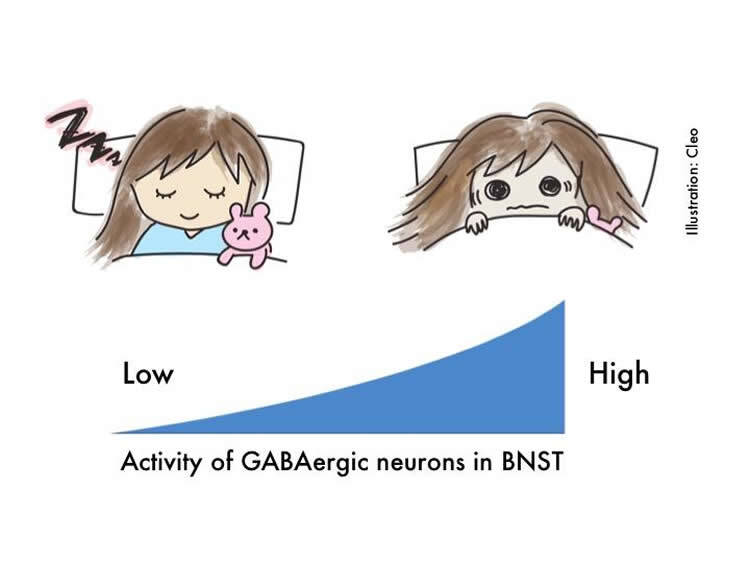Sleep is one of the most important things in life. It has been shown to improve physical health, mental health, and cognitive function. This is why many people take Ashwagandha supplements to help with sleep.
Let’s discuss three reasons why it is vital for your body and mind.
We’ll also discuss five specific benefits that come from having a good night’s rest, and why all aspects of your brain are impacted when you don’t get enough.
What are three reasons why sleep is important for the brain?
1. Sleep is necessary for the brain to process memories and information.

One of the most important aspects of why sleep is so vital to your brain’s health and function has to do with memory.
Your ability to learn new things, retain memories, and recall proper information can be impacted by how much rest you get each night.
While it may seem like sleeping less will give you more time during the day for studying or catching up on work that requires concentration, this isn’t always true.
When deprived of enough deep sleep (a phase also known as rapid eye movement or REM), your brain cannot process as much information at one time. This is because it needs adequate recovery time in between periods of learning something completely new. Not having adequate recovery time can lead to difficulties concentrating later on.
This means that if you are constantly getting low-quality rest without recharging yourself through a good night’s rest, you’ll have a harder time learning new information and recalling memories.
But don’t we all forget things from time to time? Why are memories and concentration so important?
Memories and concentration are important because without these two functions, everything starts turning into a negative cycle.
2. Without sleep you forget what you learned the previous day.

And then when you try to learn again, you can’t concentrate enough to make sense of anything!
Even if you aren’t learning anything, even mundane tasks like driving to work become harder because you can’t concentrate!
Then when you’re on your way to work you get angry at people for their driving, or find yourself stopping for a sugary cup of coffee and donuts.
Lack of rest can cause mood swings, irritability, and difficulty concentrating.
Besides learning new information and remembering important events, memory recall is vital for both your short-term and long-term health.
According to the Mayo Clinic, a lack of sleep also contributes to weight gain, in large part because you may eat more when you’re tired from not sleeping enough.
Inadequate rest is associated with impulsive behavior, poor decision-making skills, craving sweets in the middle of the night, mood swings or issues with anger management (a possible explanation why many people have difficulty getting proper rest), and impaired judgment abilities which could lead to accidents especially while driving a car if drowsy behind the wheel.
Finally – an ever so common problem these days – low energy levels often lead individuals who don’t get adequate rest each night to rely on caffeine or junk food to get through the day.
Please know lack of sleep is one of the main deficiencies causing sugar cravings!
Remember how memories and concentration are useful for everyday things like driving to work? Not to mention learning new things too!
And how if you lack memory and concentration brain functions, everything starts to turn negative!
Here’s how it goes:
- Less memory / concentration
- Worse decision making in short term (with minor negative health consequences like being more prone to anger)
- Bad decisions compound over the long term
- Create negative health outcomes (see next point)
3. A lack of sleep can lead to health issues like high blood pressure, diabetes, depression, and anxiety.

Health is both mental and physical.
In terms of physical health, getting enough rest helps your body repair and maintain a healthy immune system, helping you fight off infections and stay well more often than not.
According to WebMD, “sleep deprivation can weaken your immune system by hampering the production of infection-fighting white blood cells.”
When we don’t get enough deep sleep each night (REM), this causes an increase in stress hormones such as cortisol, which makes it difficult for our bodies to recover from illness or injury. This can lead us to feel run down and tired most days.
In terms of mental health, a lack of rest can lead to several issues including depression, anxiety, and even feelings of hopelessness, and getting more easily triggered by childhood trauma.
Depression
Depression is linked to a lack of sleep.
WebMD reports that a lack of sleep affects chemicals in your brain, which can lead to depression.
Mental health disorders such as anxiety and depression often get treated with medications aimed at inducing deeper, more restorative periods of sleep.
If you’re constantly feeling anxious or depressed without knowing why, this may be the reason! Depression links to insomnia (which then leads to other issues).
You need deep REM sleep for “happy” chemicals like serotonin and endorphins. The less deep-sleep, the higher chance for mood problems.
Depression causes sleeping issues = bad recharging mechanisms + low levels of good chemical messengers → chronic stress.
Anxiety

Anxiety is another related symptom of lacking sleep.
The National Sleep Foundation says “sleep deprivation has been found to increase activity in the part of the brain associated with anxiety.”
Anxiety is also why many people who suffer from sleeping difficulties, like insomnia, report feeling anxious and nervous during waking hours.
For some individuals, an anxiety disorder can be linked back to not getting enough sleep at night.
So if you find yourself worrying all day about things that don’t seem important – lack of rest could be why!
Anxiety (and other mood disorders) are linked specifically to poor stress management. This, in combination with + low levels of good chemical messengers = chronic stress → anxiety
Hopelessness
Lastly, things can turn dark when depression, anxiety, and stress cause you to miss even more sleep!
This is when the negative cycle is accelerated:
- First, bad rest contributes to worse mental and physical health.
- Then, worsening mental and physical health contributes to worse sleep!
This is why it’s so important to break the cycle of bad sleep before things turn even darker.
Missing out on deep, restorative sleep can lead to feelings of hopelessness and worthlessness, which then often leads into suicidal thoughts.
If you struggle with any mental health issues, make sure there isn’t an underlying cause like chronic stress or anxiety causing poor sleeping habits!
On the other hand though …
If you get enough sleep, there are a few benefits you can expect too!
What are the 5 benefits of sleep?

1. Sleep helps you stay younger.
During your deep sleep (REM), you release human growth hormone which helps keep skin smooth and firm.
According to the National Sleep Foundation, “HGH levels decrease as we age.”
So if you want to look younger for longer – it’s time to prioritize a solid night of restorative sleep!
2. Your mood will be improved.
When you sleep well, your body releases more serotonin. Many anti-depressant medications contain serotonin to help people get more REM.
So if you’re feeling down or depressed – not getting enough sleep and serotinin could be why! Get enough deep, restorative sleep and there’s a good chance this will improve.
“REM also helps maintain levels of other neurotransmitters that influence moods including dopamine, norepinephrine, and GABA.” (National Sleep Foundation)
For individuals with chronic anxiety and depression who may not benefit from medication alone – poor sleeping habits can often lead to worsening conditions over time, so make sure you prioritize getting the right amount each night. Your brain is best when you are fully recharged!
If there’s one thing that often contributes to poor sleeping habits, it would be the presence of stress.
When we’re stressed out, our bodies release cortisol which then can lead into a vicious cycle: increasing heart rate + causing us to think about less pleasant things = harder time falling asleep (aka why worrying before bed is not good!) … and so on ….
The National Sleep Foundation says “Stress also makes it more difficult for people with insomnia to fall back asleep after they wake up in the middle of the night.” So if you find yourself waking up frequently during the night – this might be why!
3. Sleep is good for your heart and blood pressure
The American Heart Association says “Lack of sleep is associated with many risk factors for coronary artery disease and stroke, including obesity.”
They go on to say why sleeping less than the recommended amount of hours each night increases your chances of having a heart attack.
So if you’re trying to improve the health of your heart – it’s time to prioritize getting enough deep restorative sleep every single day.
4. You’ll be more productive at work
Several studies show sleep is directly linked to your productivity at work.
You will be more productive by getting more hours of sleep!
The reason why? When we’re sleepy or fatigued it’s harder for us to concentrate which then results in worse performance on the job … so not only do bosses see employees as being unproductive but also irresponsible due to poor concentration skills.
5. Sleep regulates the immune system
Lack of sleep is one reason why we get sick!
Studies show that individuals who don’t sleep enough are more likely to become ill.
The American Academy of Sleep Medicine says “Prolonged lack of adequate sleep weakens your immune system leaving you vulnerable to disease.”
So if you’re looking for a way to keep yourself healthy – it’s time to prioritize getting the right amount every night so you’ll be ready in case any germs sneak up on you.
Why is it important to get enough sleep?
Overall, sleep is necessary for the brain to process memories and information. Lack of sleep can cause mood swings, irritability, and difficulty concentrating. A lack of sleep can lead to health issues like high blood pressure, diabetes, depression, and anxiety.
Here are some benefits that come with sleeping well:
- you’ll stay younger
- your mood is improved
- it’s good for your heart and blood pressure
- you’ll be more productive at work
- it regulates the immune system



